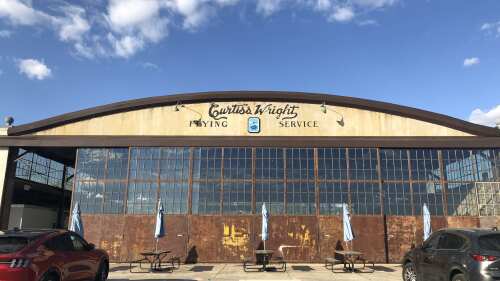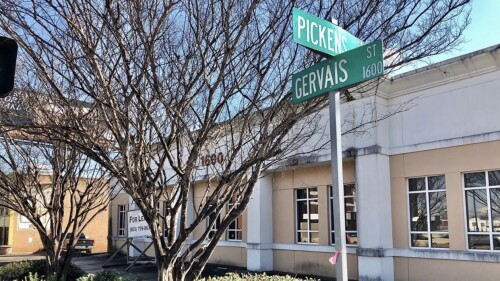We have received a number of questions about local law enforcement practices and procedures recently. We did a little digging and talked to Richland County Sheriff Leon Lott to help provide some background on our local law enforcement agency.
According to the department’s website, the Richland County Sheriff’s Department is one of the largest law enforcement agencies in the state, currently employing over 700 uniformed officers and 140 non-sworn personnel. There are many qualifications an individual must meet in order to become a police officer, including being at least 21-years-old with a clean background check, no criminal or drug-related history, having a valid driver’s license and having at least a high school diploma. Candidates are also required to complete the training at the Criminal Justice Academy, meet the physical fitness standards + pass a polygraph examination.
There are many ways to connect with the department and make your voice heard including: completing the Richland County Community Survey, commending an officer, completing an online incident report or filing an officer complaint.
We wanted to know more, so last week we spoke to Richland County’s Sheriff Leon Lott. Here is what he had to say.
Can you detail any ongoing training requirements for deputies?
“We do a lot of training. What pertains to what is happening during these challenging times right now is de-escalation training, cultural diversity training and use-of-force training. We do this with all of our new deputies that come in and we also do this annually so everybody goes through recertification every year.
“We do training throughout the year. We have our own training division, which is unique from most other agencies that rely on the Criminal Justice Academy. We have our own training staff with full-time employees. We put a lot of emphasis on training.”
What restraint tactics are approved for use in your department? Is knee on the shoulder an approved tactic?
“A knee on the shoulder is approved. That is a technique that is taught at the Criminal Justice Academy. There is no restraint that is approved that is going to basically choke someone out. . . we just don’t do that. Knee on the shoulder is approved to hold someone down to get someone under control.”
Does your department currently use body cameras? If so, what are the policies on when they are worn, and when they are actively recording?
“Everything the officers do is recorded with the exception of if they are talking to a sexual assault victim or a young child; we don’t record that. . .
“One thing that is unique about us compared to most departments in the US is that we did not rush out and get body cameras when they first came out. I wanted a specific kind of camera to take the human factor out of it. So whenever a weapon or a taser is pulled, the body camera automatically turns on if it is not already on. It will also activate the body camera of anyone in close vicinity to you. This takes out the human error of saying, ‘I forgot to turn it on.’ I think we were one of the first agencies to use that technology.”
Are there any policy changes in the works?
“Not really. When I look at the demands and requests that are being made by specific groups, we basically do all of them already. We have had the Citizens Review Council for over 20 years, an active internal affairs investigating all of the complaints and reviewing our use of force forms. We are so far ahead of most agencies in America; we have been doing this for years.
“I think that makes a big distinction between us, when you look at these other agencies. They don’t build relationships with the community, they don’t give the community a voice in what they do. Our citizens on our Citizens Advisory Council have a voice in everything that we do; they are a part of our interview board. Two members sit on our interview board when potential deputies are being interviewed and they have a vote on who gets hired here. We do a lot to build relationships with the community; we do a lot with training and transparency.”
Are there any upcoming meetings or conversations you are planning with the community?
“We are currently meeting with various groups – Black Lives Matter and I Can’t Breathe SC. We are already organizing meetings with their representatives to sit down and talk with these groups. I think having a small group meeting could be very productive. Representatives of these various groups have questions and we are arranging meetings to sit down and listen to their concerns. We want to allow them to see what we do. I don’t think a lot of people realize the extent of the policies we already have in place, and training in place that most places don’t have. We have to educate people even more about what we do.”
Does your department have any additional thoughts or information it would like to share with the community at this time?
“We are totally against what happened in Minneapolis. That individual, even though he wore a uniform, crossed the line and became a criminal when he held George Floyd down and basically killed him. That doesn’t represent what law enforcement is about. We are totally against anything like that.
“We respect peaceful protesting; that’s a right of all Americans to peacefully protest. We provide support to anybody that wants to do that. Only by us working together can we move forward and change some of the issues that exist.”











